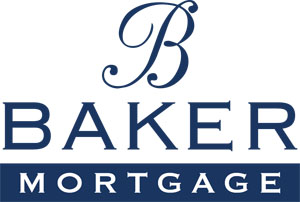Posted on Nov 3, 2021 in
On the Porch with Patti

 All that glitters is not gold. We all know that, but when you’re dealing with anything financially, especially when it’s your home and in most cases your largest asset, you’ve got to be really careful and thoroughly understand what you’re getting into, and the impacts it will have on you and your financial future. Millions of dollars are spent on the marketing that is targeted towards seniors, and it’s done very well and very effectively, and you’re watching that guy that used to be on Law and Order, and thinking, “He wouldn’t Lie to me, would he”?
All that glitters is not gold. We all know that, but when you’re dealing with anything financially, especially when it’s your home and in most cases your largest asset, you’ve got to be really careful and thoroughly understand what you’re getting into, and the impacts it will have on you and your financial future. Millions of dollars are spent on the marketing that is targeted towards seniors, and it’s done very well and very effectively, and you’re watching that guy that used to be on Law and Order, and thinking, “He wouldn’t Lie to me, would he”?
The first time I read a brochure on Reverse Mortgages, I was wishing I was 62 so I could go get one! It sounded Fabulous! No Payments! You get to live in the home payment Free! They’re even going to give you some money to do it! Can’t go wrong! HOLD ON…before signing on the dotted line, first thing to remember, NOTHING is free.
Look, I get it, I really do. People want to stay in their homes because they’re comfortable there and moving is a hassle and a pain, and home is where our heart it. But it may or may not make sense to do everything you can to stay in a home that’s going to start working against you at some point rather than for you. Does that make sense? In my opinion, for a very select group of people, a Reverse Mortgage may be a good solution, BUT it’s a very small percentage of the 100’s of people I’ve spoken with that were inquiring about it. There are a lot of differences between a regular purchase or refinance loan, and a Reverse Mortgage.
The Reverse Mortgage business, when it comes to comparing closing costs, equates somewhat to borrowing money from a Pawn Shop. You can do it, but it’s an expensive way to go. There’s a lot of “smoke and mirrors” type stuff when it comes down to “what’s this going to cost me”. It is kind of like a timeshare, except it eventually can be paid off, you just really won’t know how much it costs until you go pay it off. All kinds of fees and formulas used to figure payoffs, you get the idea.
You will still have to pay the property taxes, the insurance and Homeowner’s Association dues if there’s one where you live, so if you can’t afford those things with whatever your current income is, then don’t do it. It’s better at that point to sell the house, and get your equity rather than handing it over to someone else.
You’re required to maintain the home to a certain level, and if you’re not able to, they’ll do it for you and add it back into the costs when that payoff is eventually figured.
Some lenders don’t want your family involved in the meetings or any Q & A sessions. If your parents are considering a Reverse Mortgage, I hope you’ll be there asking questions before they sign up for this type of deal. If the lender doesn’t want your family aware of the details, or doesn’t openly answer questions your family members may have, there’s a good reason, do business with someone else.
If you are OK with the information above and can comfortably make the payments on taxes, insurance, maintenance, HOA fees, AND nobody is concerned about how much equity, if any, will be left in your home, then a Reverse Mortgage may make sense to explore.
Take time to look over the paperwork and have someone you trust look it over. Do Not do business with anyone trying to rush you. This is more likely to happen towards the end of the month, because in many cases, these nice people you’re talking to work on quotas, and they’ll sometimes push people along, like, “this deal may not be available on Monday,” because they’re trying to make their numbers for the month. So what. Another “deal” will be available next week, do not let people push you into anything unless and until you’re comfortable with it.
I would recommend in most cases IF you’re going to get a Reverse Mortgage, for most people I think that setting it up so that you get some cash now, if needed for immediate expenses and set it up with an income stream to come to you monthly. DO NOT just take all the cash you can get out of it unless you’re not planning on being there very long. Otherwise, it’s like turning your home into a lottery ticket, where a year from now, or sooner, you’re going to need more money and you already got it all out. Don’t put yourself in that position.
Always read everything carefully, and when dealing with anything as large and important, deal with someone you can go sit down and talk with face to face. EVEN if you don’t want to, the important part is that you Could. You can’t do that if you’re dealing with someone in New Jersey. As always, stay Local and support our small businesses when you can. They stay around because they do it right.
For more information, visit www.bakermortgage.com.


 <
<







 All that glitters is not gold. We all know that, but when you’re dealing with anything financially, especially when it’s your home and in most cases your largest asset, you’ve got to be really careful and thoroughly understand what you’re getting into, and the impacts it will have on you and your financial future. Millions of dollars are spent on the marketing that is targeted towards seniors, and it’s done very well and very effectively, and you’re watching that guy that used to be on Law and Order, and thinking, “He wouldn’t Lie to me, would he”?
All that glitters is not gold. We all know that, but when you’re dealing with anything financially, especially when it’s your home and in most cases your largest asset, you’ve got to be really careful and thoroughly understand what you’re getting into, and the impacts it will have on you and your financial future. Millions of dollars are spent on the marketing that is targeted towards seniors, and it’s done very well and very effectively, and you’re watching that guy that used to be on Law and Order, and thinking, “He wouldn’t Lie to me, would he”?